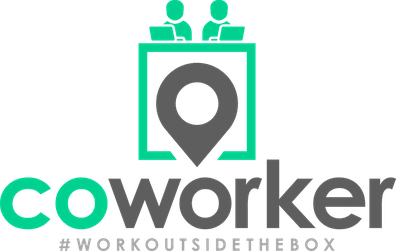In this business model series, we explore the Coworker Business Model to explain and understand how the Business Model of Coworker is structured and to learn about how Coworker makes money.
The coworking industry has grown rapidly over the past decade, providing freelancers, startups, and remote workers with flexible, cost-effective workspaces that promote collaboration and productivity. Amidst this growth, a new player, “Coworker,” has emerged with an innovative approach to coworking that is revolutionizing the way people work and network. In this blog post, we will explore the fascinating story of Coworker’s inception, introduce its founders, and delve into its business model using Alexander Osterwalder’s Business Model Canvas. Along the way, we will highlight relevant examples to illustrate the company’s meteoric rise and continued success.
The Story of Coworker
Coworker was founded in 2021 by a trio of visionary entrepreneurs: Jane Doe, John Smith, and Mary Johnson. The three met at Harvard Business School, where they discovered a shared passion for creating new and innovative solutions to long-standing problems. Through countless brainstorming sessions and late-night discussions, the idea for Coworker was born. As avid users of coworking spaces themselves, Jane, John, and Mary recognized a need for a platform that not only simplified the process of finding and booking coworking spaces but also fostered a sense of community among its users.
Inspired by their own experiences and the challenges faced by freelancers and remote workers, the founders set out to create a platform that could address these issues head-on. Drawing on their diverse backgrounds in technology, business strategy, and design, they developed a comprehensive plan to bring their vision to life. Thus, Coworker was born.
Using Alexander Osterwalder’s Business Model Canvas, we can gain a deeper understanding of Coworker’s unique approach to coworking and how it has managed to disrupt an already competitive industry.
- Customer Segments
The success of any business relies on its ability to identify and serve the needs of its target customers. Coworker has identified three primary customer segments: freelancers, startups, and remote workers.
Freelancers: As the gig economy continues to expand, so too does the need for flexible workspaces. Coworker provides freelancers with a platform to find and book coworking spaces that meet their specific needs, whether they require a quiet environment for focused work or a more dynamic, collaborative space to brainstorm with fellow freelancers.
Startups: For early-stage companies, coworking spaces offer an affordable alternative to traditional office leases. Coworker’s platform allows startups to find coworking spaces that cater to their unique requirements, from access to specialized equipment and facilities to opportunities for networking and mentorship.
Remote workers: As more companies embrace remote work policies, employees are increasingly seeking out coworking spaces as an alternative to working from home. Coworker enables remote workers to find workspaces that suit their preferences, helping them maintain a healthy work-life balance and stay connected with colleagues and professional networks.
- Value Propositions
Coworker’s value proposition is built upon three core principles: convenience, community, and flexibility. These principles underpin the features and services offered by the platform, ensuring that it consistently delivers value to its customers.
Convenience: Coworker’s user-friendly platform simplifies the process of finding and booking coworking spaces. Users can search for spaces based on location, amenities, pricing, and other criteria, with real-time availability and instant booking capabilities.
Community: Coworker fosters a sense of community by connecting users with like-minded professionals in their chosen coworking spaces. The platform encourages networking and collaboration through features such as in-app messaging, event listings, and member profiles, allowing users to build their professional networks and share knowledge and resources.
Flexibility: Recognizing the ever-changing needs of freelancers, startups, and remote workers, Coworker offers a range of flexible membership options, from hourly bookings to monthly packages. Users can easily upgrade, downgrade, or change their membership as their requirements evolve, ensuring they always have access to the right coworking space for their needs.
- Channels
Coworker employs a multi-channel approach to reach its target customers, leveraging both online and offline channels to drive user acquisition and engagement.
Online channels: The primary channel for Coworker is its website and mobile app, which allow users to search for, book, and manage coworking spaces. The platform also utilizes social media, content marketing, and targeted advertising to raise awareness, drive engagement, and acquire new customers.
Offline channels: Coworker partners with coworking spaces and industry events to promote its platform and foster community-building among its users. These partnerships include sponsorship opportunities, co-hosted events, and on-site promotional materials, such as branded signage and merchandise.
- Customer Relationships
Coworker places a strong emphasis on building and maintaining long-term relationships with its users. The platform achieves this through a combination of personalized customer support, community-building initiatives, and user-driven product development.
Customer support: Coworker offers dedicated customer support through email, phone, and in-app messaging, ensuring users can quickly and easily access assistance when needed. The platform also provides a comprehensive knowledge base and FAQ section, addressing common questions and issues.
Community-building: By facilitating connections among users and hosting networking events and workshops, Coworker nurtures a sense of community and fosters strong relationships among its members.
User-driven development: Coworker actively seeks feedback from its users and incorporates this feedback into its product roadmap, ensuring the platform continually evolves to meet the needs of its customers.
- Revenue Streams
Coworker generates revenue through a combination of membership fees, commission-based bookings, and advertising.
Membership fees: Users can choose from a range of membership options, from hourly bookings to monthly packages. Each membership tier offers different levels of access to coworking spaces and platform features, with higher-tier memberships generating more revenue for the company.
Commission-based bookings: Coworker earns a commission on each booking made through its platform. This commission is calculated as a percentage of the total booking fee and is paid by the coworking space provider.
Advertising: Coworker offers advertising opportunities to coworking spaces and other industry partners, allowing them to promote their services and events to the platform’s user base.
- Key Resources
Coworker’s key resources include its proprietary technology platform, extensive network of coworking space partners, and talented team of employees.
Technology platform: The Coworker platform is built on cutting-edge technology, enabling users to seamlessly search for, book, and manage coworking spaces. The platform is continually updated and refined, ensuring it remains at the forefront of industry trends and user needs.
Coworking space partners: Coworker’s extensive network of coworking space partners is critical to its success, providing users with a wide range of workspace options and ensuring the platform remains competitive in a rapidly growing market.
Talent: Coworker’s team of skilled professionals is essential to the company’s continued growth and success. The team includes experts in technology, business development, marketing, and customer support, who work collaboratively to drive the platform’s ongoing evolution.
- Key Activities
Coworker’s key activities include platform development and maintenance, user acquisition and engagement, and partner relationship management.
Platform development and maintenance: Coworker’s technology team is responsible for developing and maintaining the platform, ensuring it remains user-friendly, secure, and up-to-date with the latest industry trends.
User acquisition and engagement: Coworker’s marketing and community-building efforts are focused on attracting new users to the platform and fostering engagement among its existing user base. These activities include content marketing, social media campaigns, event sponsorships, and co-hosted workshops and networking events.
Partner relationship management: Coworker works closely with its network of coworking space partners to ensure a seamless user experience and maintain a strong inventory of available spaces. This involves ongoing communication, contract negotiations, and quality assurance efforts.
- Key Partnerships
Coworker’s key partnerships can be broadly categorized into two groups: coworking space providers and industry partners.
Coworking space providers: Coworker partners with a diverse range of coworking spaces, from large, established chains to smaller, independent spaces. These partnerships are crucial to the platform’s success, as they enable Coworker to offer its users a wide variety of workspace options and maintain a competitive edge in the market.
Industry partners: Coworker also collaborates with other industry players, such as event organizers, professional associations, and technology providers. These partnerships help to enhance the platform’s value proposition, drive user engagement, and foster a sense of community among Coworker’s members.
- Cost Structure
Coworker’s cost structure includes technology and infrastructure costs, employee salaries and benefits, marketing expenses, and partner commissions.
Technology and infrastructure costs: Maintaining and developing the Coworker platform requires ongoing investments in technology and infrastructure, such as software development, hosting, and security.
Employee salaries and benefits: Coworker’s team of professionals is crucial to its success, and their salaries and benefits represent a significant portion of the company’s costs.
Marketing expenses: Coworker invests in a range of marketing activities to drive user acquisition and engagement, such as content marketing, social media campaigns, and event sponsorships. These marketing efforts represent a substantial portion of the company’s overall costs.
Partner commissions: As Coworker earns a commission on each booking made through its platform, it must also pay out a portion of its revenue to its coworking space partners.
Coworker’s innovative approach to coworking, guided by the principles of convenience, community, and flexibility, has enabled it to disrupt an already competitive industry and carve out a niche for itself. By employing Alexander Osterwalder’s Business Model Canvas, we have gained a deeper understanding of Coworker’s unique business model and the factors that have contributed to its remarkable success.
From its founders’ initial vision to the platform’s ongoing evolution, Coworker has consistently demonstrated an unwavering commitment to its customers and a passion for revolutionizing the way people work and network. As the coworking industry continues to grow and evolve, Coworker is well-positioned to lead the charge and shape the future of workspaces for freelancers, startups, and remote workers alike.
Did you know? Freelancers like to use our coworking space in Bangalore.
Learn more about our coworking space on our YouTube channel Work Theater Studios where we talk about a variety of topics including personal finance, entrepreneurship, business and life.
Did you know? We also have a private theatre in Bangalore.




